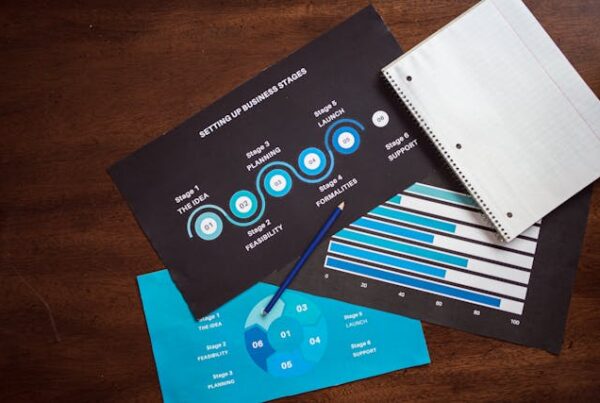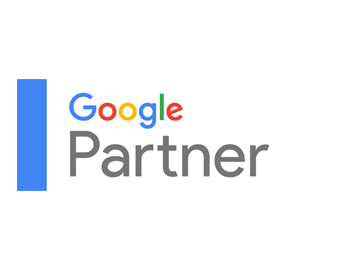The sci-fi movies that came out decades ago probably astonished people at the time. It was probably hard for them to imagine that one day, a machine would give them the answer to everything in the blink of an eye. Artificial intelligence in marketing is based on this development.
This is a reality for us today. Technology has advanced far beyond what we had ever imagined. Most importantly, artificial intelligence in marketing has revolutionized how products are sold and how consumers come across them.
Google’s search algorithms have changed more times in the past few years than in the past two decades. This is because a new artificially intelligent development is launched nearly every day. It includes chatbots, voice search, digital assistants, and multiple platforms where marketing is conducted.
Artificial Intelligence in Marketing: Rising Trends
As of 2021, the market for artificial intelligence rose to 15.84 billion US dollars. This means that AI is becoming popular worldwide for its many uses in marketing and different industries. Here are some trends we can notice in marketing;
1. Virtual Assistants
They used to be called chatbots, but they are getting more sophisticated as the days progress. Today, many people call them virtual assistants as they have become much more intelligent than the quintessential bot we used to see on websites a decade ago.
Today, chatbots can access millions of customer datapoints in minutes. They can also store a lot more information on the basis of which they make most of their decisions. This allows them to provide customers with faster service.
The faster the bots work, the more likely customers will prefer them over human interaction. In the 21st century, people prefer getting done with their business and moving on to the next thing without talking to a representative for hours and explaining their needs.
Chatbots have made things easy for these customers. The easier it is for bots to understand what the customer needs, and the faster their service, the more the customer is likely to buy the product. Perhaps this is the reason many companies are integrating chatbots into their website.
2. Data Storage, Processing, and Analytics
According to a study published in Forbes, AI allows marketers to increase their sales by 52%. Why is this a reality?
Today, marketing has traveled past the older methods to identify target audiences. Many social media platforms, such as Facebook, have collaborated with multinationals to provide their consumerswith targeted ads.
Whatever you see on your screens today is a result of past behavior, clicks, or interaction. This data is stored, analyzed, and then processed to provide you with results that you will like. In some cases, facial recognition can also track your interactions and deliver specific content.
The same is true for emails. Gone are the days when you had to mass email and wait for the results. Today, you only need to use AI to create specific emails for people based on their past interactions and their personality.
The customer will receive a curated email from you without you having to lift a finger. Moreover, future content will be tweaked according to the customer’s reaction.
3. Targeting the User
Okay, we are done figuring out the target audience through specialized artificial intelligence. But how do we go about “targeting” it? Artificial intelligence has a solution.
Website designers can simply design the elements and incorporate all the product needs, adding an artificially intelligent bot as a final touch.
Following this, AI will tweak the interaction and behavior on the website and allow users to gain a better experience. Reports can also be generated to give the team a better idea regarding what works and what does not.
The more personalized content is delivered on a website, the more users can relate to it. Personalized content allows them to feel a connection to the product. Eventually, it works in the product’s favor as it experiences more conversions.
4. Machine Learning
Have you ever noticed how the moment you speak about something or even think of it, it pops up on your screens? Well, you aren’t being tracked and don’t have a chip infused into your brain, but highly intelligent bots are certainly recording your interactions and activity.
These bots are responsible for taking in your activity and understanding your engagement (what you like and what you don’t) to show you only the content you love. Today, companies don’t have to lift a finger for their marketing. They can simply allow the bot to target an audience through its algorithms. More often than not, this target audience is going to be more accurate than any other.
5. Accuracy
Artificial intelligence in marketing is making marketing efforts much more accurate. Business owners don’t have to employ guesswork to figure out which audience to target and which product is more beneficial for them.
They can even use artificial intelligence to determine if an asset is worth keeping. Data analytics allows them to do this and much more, which increases their productivity and frees up their time for other, more important work.
Final Thoughts
Artificial intelligence is changing the face of marketing. It has developed products and marketing techniques far beyond our wildest imaginations and continues to do so. In the future, perhaps we can see facial recognition software identify us in public and play ads for us accordingly.
For now, we have to stick with what we have; a whole lot of space to explore the marketing world. Product owners who are utilizing this landscape are able to achieve far better results than others. It is about time you jumped on the bandwagon!
How can you incorporate artificial intelligence in marketing efforts? Let us know, or keep following VUP Media for regular updates on marketing trends in 2023.










